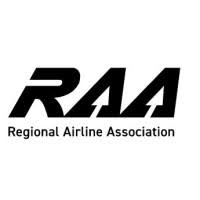Source:RAA
The Regional Airline Association joined 65 other aviation stakeholders in encouraging the Senate Commerce, Science, and Transportation Committee to pass an FAA reauthorization bill that addresses the pilot shortage and improves and modernizes pilot training to enhance safety.
“The pilot shortage is a devastating crisis and is resulting in hundreds of parked regional aircraft. However, regional airlines aren’t the only ones grappling with this crisis. Small communities across the country are dealing with the negative economic consequences of a loss of air service. Travelers are also facing higher airfare and loss of options, forcing them to drive to their destinations, which is a far less safe form of travel. Now is the time to act and advance solutions that will immediately increase the pilot workforce and improve pilot training,” said Faye Malarkey Black, President & CEO of the Regional Airline Association.
Currently, there are more than 400 regional aircraft parked throughout the country, and the remaining aircraft in service are being operated between 20-40% less than their usual operation. This is having a devastating impact on airports across the country and has resulted in 310 airports in the contiguous United States, or 72 percent, losing on average, 26 percent of their flights. Fourteen airports have lost all their service and 41 airports have lost at least 50 percent of their service. From a state-by-state air service perspective, 39 of 50 states have less air service today than they did pre-pandemic. Additionally, comparing October 2019 departures to October 2023 schedules, large carriers have exited 131 markets, with 77 of those exits representing a loss of regional lift.
Additionally, despite FAA pilot certifications increasing in both 2022 and 2023, there are not enough qualified pilots of hire with large air carriers hiring more pilots than have been produced. Through October of 2023, 9,300 pilots have qualified for an ATP; yet large carriers have already hired slightly over 11,000 pilots primarily from regional airlines. Unless immediate action is taken, the pilot shortage will continue to be a growing crisis, as more than 60 percent of pilots are forced to retire over the next two decades. Increasing the pilot retirement age is a proven solution that will keep experience on the flight deck and help small communities preserve air service.
A copy of the letter signed by a wide range of aviation stakeholders, including the Regional Airline Association, can be found here.

